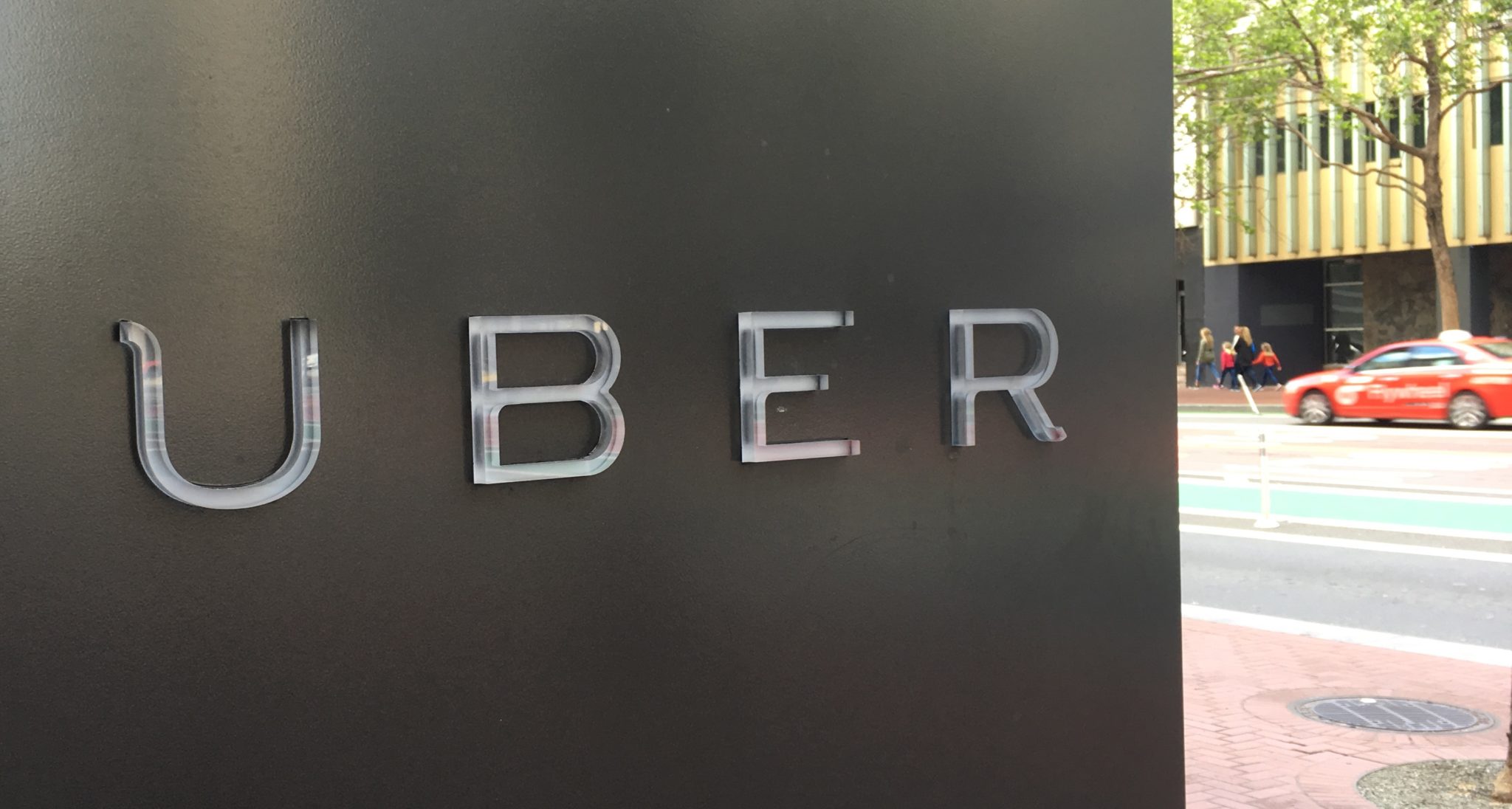[caption id="attachment_140303" align="aligncenter" width="3195"]

Uber offices in San Francisco.[/caption] Uber’s
hall of shame 2017 continues. On top of yet another blog post claiming deeper discrimination inside the San Francisco-based startup, former employees are reporting they’re finding it
difficult to find work elsewhere in the wake of Uber’s various scandals. Via
Medium, which seems to be the
de facto method for Uber staff (current and former) to publish their own #UberStory, another tale of discrimination and sexism has surfaced. This time, a female manager is under fire for her treatment of an engineer. That engineer, ‘Kaela’ (possibly a pseudonym), wrote in the posting that her boss held her back from promotions and working remotely (the latter is evidently part of the
positive culture at Uber), and chided her for wearing a tank top to work. After a rushed meeting with a stressed manger whose team Kaela was switching to, her current boss ‘Tina’ (we know that name's fake, per the post) suggested it went poorly because of how she dressed (emphasis Kaela’s):
The next day, Tina and I had a 1:1 and she asks, “How do you think the meeting with Mark went yesterday?” I told her it would have been better if he wasn’t distracted by the incident, but I’m glad he chose to meet with me. He’s an extremely busy guy and really good at what he does and I am beyond excited to work with him and his team — they are awesome. She continued, “Did you notice that he wasn’t really making eye contact with you? What do you think of that?” So I said, “He was in the middle of an incident and seemed very stressed out, but other than that nothing seemed strange.” I was stunned by the follow-up question that would disgust all the coworkers I told: “Do you think it was because you were wearing a tank top?”
“If Uber wants to become better, I think shedding light on dark situations like this is the first step to bringing about change,” Kaela wrote. “Management needs to stop shying away from the issues and pretending problems don’t exist.” But for those who have already jumped ship, finding a new job may be difficult.

“They have to defend themselves [in interviews] and say, ‘Oh, I’m not an asshole,’” one former Uber staffer told
The Guardian. Aggression has long been seen as part of the so-called "Uber way." Though it’s raised questions about questionable office culture, the methodology has also made Uber a leader in its field. The disfunction described by Kaela and others is affecting Uber staffers long after they leave. In job interviews, that unnamed staffer told the newspaper, former employees are struggling to find a way to convince prospective employers they don’t identify with the bad behavior – even as they benefitted from Uber’s drive to succeed. Uber’s will is
possibly admirable, but also questionable. In what’s called “Uberversity,” a three-day orientation, yet another Uber staffer, using the pseudonym ‘David,’
said the win-at-all-costs mindset is hard-coded into new employees' psyches:
The trainers gave David, who asked not to be identified by his real name, and his cohort a scenario: Uber has learned that a rival company is launching an equivalent to UberPool (the company’s carpooling service) in four weeks. It’s impossible for Uber to beat them to market with a functional and reliable carpool service. Then the group was asked: what should the company do? “The correct answer (and what they did) was: develop an incomplete solution and beat the competitor to market,” David said. This was in keeping with one of the company’s 14 core values: “Always be hustlin’”. Those who proposed taking more time to come up with a product rather than rushing to beat the competition to market were told “that’s not the Uber way.”
Leslie Miley, director of engineering at Slack, told the newspaper: “To be perfectly honest, I don’t want to work with someone who did well in that environment. If you did well in that environment upholding those values, I probably don’t want to work with you.” Miley’s comments cuts to the core: if you’re not part of the solution, you’re part of the problem. Not all actors at (or from) Uber are bad, but if you turned a blind eye or deaf ear to what was going on, a company employing you has a right to be concerned about your moral compass. With what feels like daily news about Uber's culture and
business practices, finding how to explain away "the Uber way" is something an increasing number of alumni are forced to reckon with.
 Uber offices in San Francisco.[/caption] Uber’s hall of shame 2017 continues. On top of yet another blog post claiming deeper discrimination inside the San Francisco-based startup, former employees are reporting they’re finding it difficult to find work elsewhere in the wake of Uber’s various scandals. Via Medium, which seems to be the de facto method for Uber staff (current and former) to publish their own #UberStory, another tale of discrimination and sexism has surfaced. This time, a female manager is under fire for her treatment of an engineer. That engineer, ‘Kaela’ (possibly a pseudonym), wrote in the posting that her boss held her back from promotions and working remotely (the latter is evidently part of the positive culture at Uber), and chided her for wearing a tank top to work. After a rushed meeting with a stressed manger whose team Kaela was switching to, her current boss ‘Tina’ (we know that name's fake, per the post) suggested it went poorly because of how she dressed (emphasis Kaela’s):
Uber offices in San Francisco.[/caption] Uber’s hall of shame 2017 continues. On top of yet another blog post claiming deeper discrimination inside the San Francisco-based startup, former employees are reporting they’re finding it difficult to find work elsewhere in the wake of Uber’s various scandals. Via Medium, which seems to be the de facto method for Uber staff (current and former) to publish their own #UberStory, another tale of discrimination and sexism has surfaced. This time, a female manager is under fire for her treatment of an engineer. That engineer, ‘Kaela’ (possibly a pseudonym), wrote in the posting that her boss held her back from promotions and working remotely (the latter is evidently part of the positive culture at Uber), and chided her for wearing a tank top to work. After a rushed meeting with a stressed manger whose team Kaela was switching to, her current boss ‘Tina’ (we know that name's fake, per the post) suggested it went poorly because of how she dressed (emphasis Kaela’s):
 “They have to defend themselves [in interviews] and say, ‘Oh, I’m not an asshole,’” one former Uber staffer told The Guardian. Aggression has long been seen as part of the so-called "Uber way." Though it’s raised questions about questionable office culture, the methodology has also made Uber a leader in its field. The disfunction described by Kaela and others is affecting Uber staffers long after they leave. In job interviews, that unnamed staffer told the newspaper, former employees are struggling to find a way to convince prospective employers they don’t identify with the bad behavior – even as they benefitted from Uber’s drive to succeed. Uber’s will is possibly admirable, but also questionable. In what’s called “Uberversity,” a three-day orientation, yet another Uber staffer, using the pseudonym ‘David,’ said the win-at-all-costs mindset is hard-coded into new employees' psyches:
“They have to defend themselves [in interviews] and say, ‘Oh, I’m not an asshole,’” one former Uber staffer told The Guardian. Aggression has long been seen as part of the so-called "Uber way." Though it’s raised questions about questionable office culture, the methodology has also made Uber a leader in its field. The disfunction described by Kaela and others is affecting Uber staffers long after they leave. In job interviews, that unnamed staffer told the newspaper, former employees are struggling to find a way to convince prospective employers they don’t identify with the bad behavior – even as they benefitted from Uber’s drive to succeed. Uber’s will is possibly admirable, but also questionable. In what’s called “Uberversity,” a three-day orientation, yet another Uber staffer, using the pseudonym ‘David,’ said the win-at-all-costs mindset is hard-coded into new employees' psyches:

